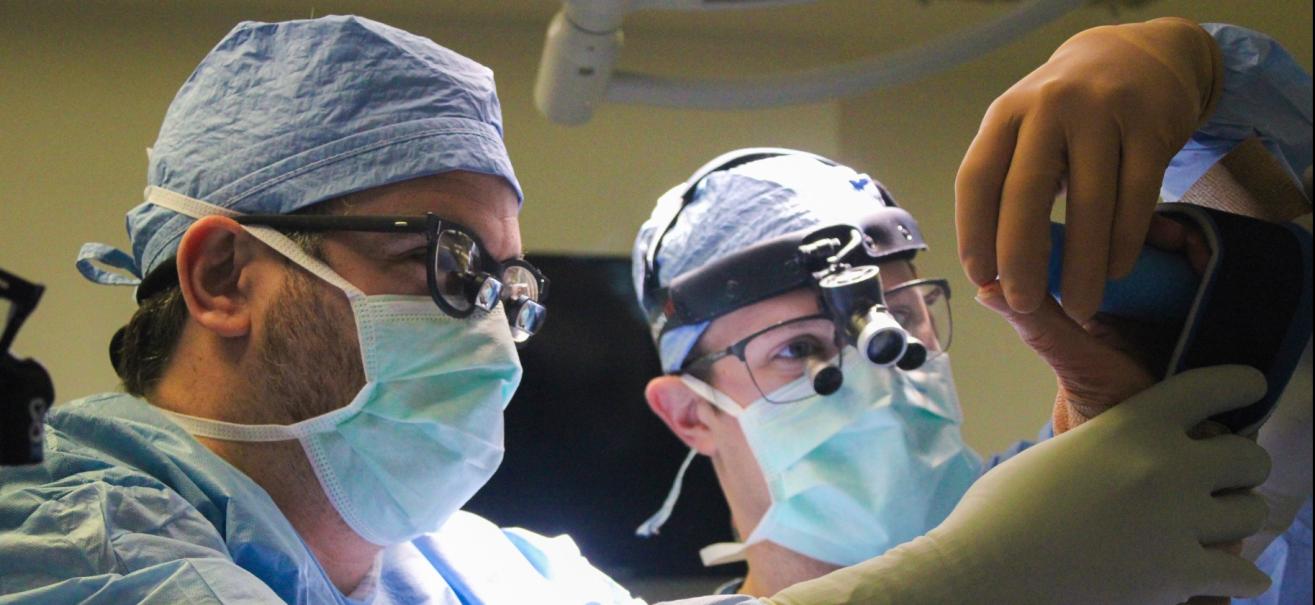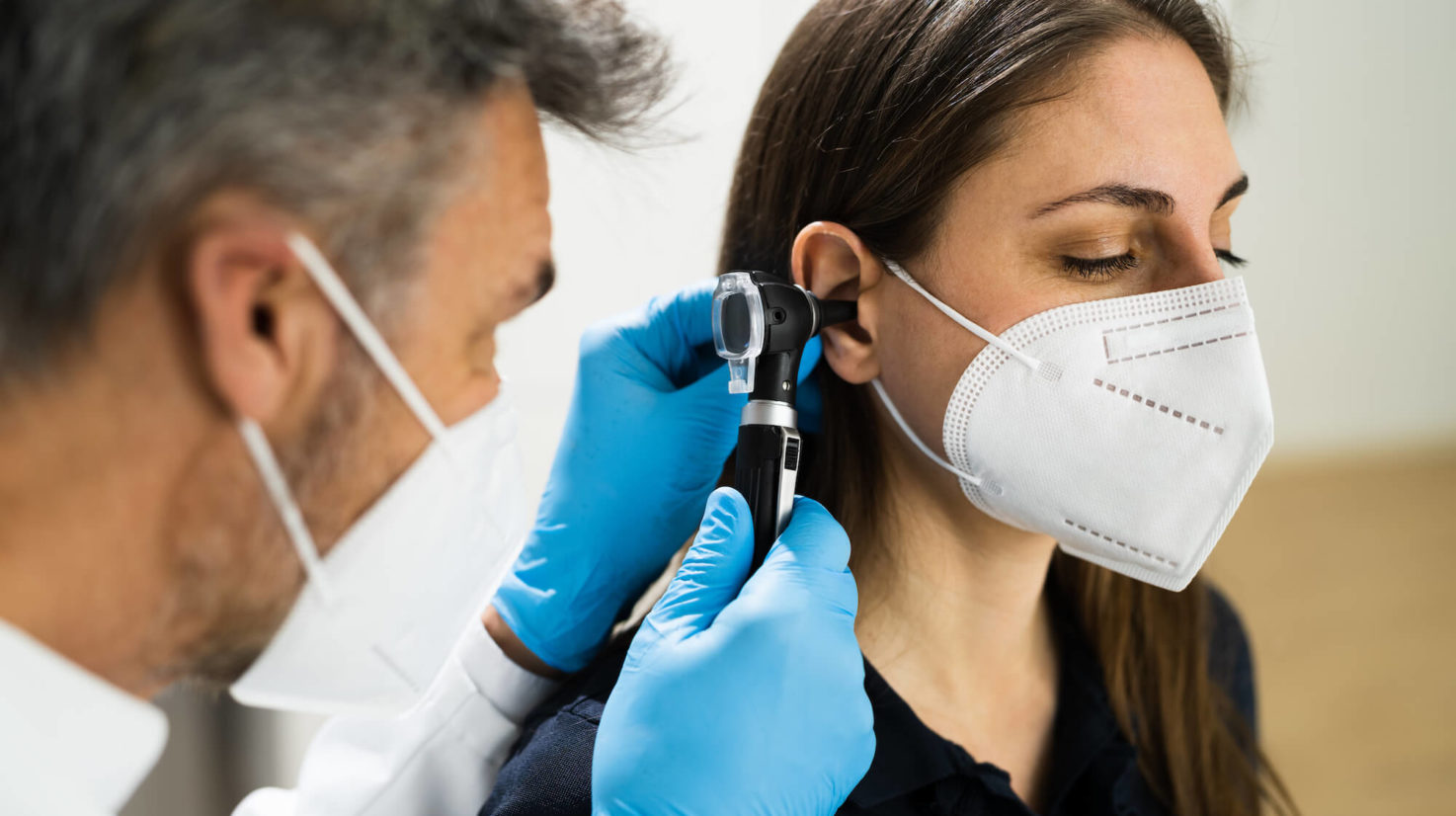Tinnitus or Sound Sensitivity? Here's When to Seek Help from a Hearing ENT
Tinnitus or Sound Sensitivity? Here's When to Seek Help from a Hearing ENT
Blog Article
Exploring the Field of Otolaryngology: What to Expect When You Speak With an ENT
Otolaryngology, commonly described as ENT, incorporates the medical diagnosis and therapy of throat, ear, and nose problems. For those experiencing associated issues, seeking advice from an ENT professional can offer clarity and alleviation. Recognizing what to anticipate during such consultations is important for effective communication and treatment. This review will lay out crucial aspects of the ENT experience, including typical reasons for brows through and the procedures associated with diagnosis and therapy.

Understanding Otolaryngology: A Summary
Otolaryngology, commonly referred to as ENT (Nose, ear, and throat) medicine, is a specialized branch of medication that concentrates on the medical diagnosis and treatment of conditions influencing these vital areas of the human body. This field incorporates a vast array of problems, consisting of those related to hearing, balance, respiratory function, and speech. Otolaryngologists are trained to manage both surgical and medical treatments, using sophisticated techniques and technologies. Their proficiency prolongs past traditional conditions, resolving concerns such as allergies, sinus infections, and hearing loss. Additionally, they play an important duty in the monitoring of head and neck cancers, giving complete treatment customized to specific person demands. Overall, otolaryngology remains important for preserving health and wellness and high quality of life in afflicted people.
Usual Reasons to See an ENT Specialist
Lots of people look for the experience of an ENT professional for a range of factors, showing the varied nature of problems that impact the throat, nose, and ear. Common issues consist of chronic sinus problems, which usually causes consistent nasal congestion and face pain. Allergic reactions and their associated signs, such as itching and sneezing, additionally trigger brows through to these experts (Otolaryngology). Hearing loss, whether gradual or abrupt, is one more substantial reason for consultation. Furthermore, individuals might look for evaluation for throat problems, including consistent hoarseness or swallowing problems. Rest apnea, characterized by cut off breathing throughout rest, is regularly dealt with by ENT professionals as well. Each of these problems highlights the relevance of specialized care in handling complex ENT-related health issues
Getting ready for Your ENT Visit
When planning for an ENT consultation, it is vital to collect pertinent details and consider any type of details concerns. Individuals need to compile a detailed medical background, consisting of previous ear, nose, or throat concerns, surgical procedures, and current medications. Recording symptoms-- such as period, intensity, and regularity-- can provide important insights for the ENT professional. Additionally, people should prepare a checklist of questions they desire to ask, ensuring that all concerns are addressed during the browse through. Bringing along any kind of pertinent clinical records or examination results can even more assist the ENT in recognizing the client's condition. Clients must verify their appointment details, including location, day, and time, to lessen any type of last-minute complication. Appropriate preparation can boost the performance of the appointment and cause better results.
What to Anticipate Throughout the Consultation
As the appointment starts, the individual can anticipate to participate in a comprehensive conversation with the ENT expert concerning their signs and case history. The specialist will certainly ask about the duration, regularity, and seriousness of signs and symptoms such as hearing loss, nasal congestion, or aching throat. Furthermore, the patient's previous medical problems, medicines, and any kind of pertinent family background will be examined, aiding the professional in forming a full understanding of the patient's wellness. The ENT may also inquire about lifestyle aspects, such as direct exposure to allergens or toxic irritants. This open discussion establishes a foundation for the consultation, making sure that the patient's issues are resolved and setting the stage for any type of essential assessments or suggestions for therapy.
Analysis Tests and Procedures in Otolaryngology
A variety of analysis examinations and procedures are important in otolaryngology to precisely review and detect conditions affecting the ear, throat, and nose. Typical examinations check my source consist of audiometry, which gauges hearing function, and tympanometry, analyzing middle ear pressure. Nasal endoscopy enables visualization of the nasal passages and sinuses, while laryngoscopy analyzes the throat and vocal cords. Imaging methods, such as CT scans and MRIs, supply in-depth sights of head and neck structures. Allergy testing may also be carried out to determine triggers for sinus or breathing issues. These analysis devices make it possible for ENT specialists to create an extensive understanding of patients' conditions, making certain tailored and efficient management strategies. Correct medical diagnosis is necessary for successful therapy results in otolaryngology.
Therapy Alternatives Supplied by ENT Specialists
ENT professionals supply a selection of treatment options tailored to resolve particular conditions impacting the nose, throat, and ear. These therapies vary from conventional approaches, such as medicine and lifestyle alterations, to more intrusive procedures. As an example, allergies may be taken care of with antihistamines or immunotherapy, while chronic sinus problems might call for nasal corticosteroids or sinus surgery. For hearing loss, ENT professionals frequently advise listening device or medical treatments like cochlear implants. In cases of throat conditions, options can consist of speech therapy or medical procedures to remove obstructions. In addition, they might supply advice for handling rest apnea, consisting of the usage of CPAP gadgets or surgical interventions. Overall, the goal is to boost individuals' high quality of life with personalized care and reliable treatment techniques.
When to Seek Follow-Up Treatment With an ENT
Recognizing when to seek follow-up care with an ENT expert is vital for managing continuous signs and symptoms or difficulties associated with ear, nose, and throat conditions. Clients ought to take into consideration setting up a follow-up appointment if symptoms persist regardless of preliminary treatment, such as persistent ear pain, nasal congestion, or throat pain. Modifications in hearing, balance problems, or unusual nasal discharge may additionally necessitate further assessment. In addition, if a client experiences negative effects from suggested drugs or has undertaken an operation, follow-up treatment is necessary to keep track of healing and deal with any type of issues. Prompt assessments can assure efficient management of conditions, avoid potential issues, and supply satisfaction concerning one's health and wellness. Looking for follow-up treatment promotes aggressive health management in otolaryngology.
Regularly Asked Inquiries

What Qualifications Should I Seek in an ENT Expert?
When looking for an ENT expert, one must look for board accreditation, relevant experience, and strong individual evaluations. Additionally, effective communication skills and a compassionate strategy can significantly boost the overall therapy experience.
How Do I Choose the Right ENT for My Requirements?
Choosing the best ENT specialist entails assessing their certifications, experience, and client testimonials (Otorrinolaringologia). It is vital to ponder their communication design and strategy to therapy, ensuring they line up with the person's specific wellness demands and choices
Exist Any Kind Of Threats Related To ENT Procedures?
The threats related to ENT procedures might include infection, bleeding, anesthetic complications, and possible damages to bordering frameworks. Individuals need to discuss these risks with their doctor to recognize specific problems and guarantee educated choices.
How Can I Handle Stress And Anxiety Before My ENT Consultation?
To manage stress and anxiety prior Recommended Reading to an appointment, people can exercise deep breathing exercises, visualize favorable outcomes, prepare concerns ahead of time, and seek assistance from friends or household, fostering a sense of peace of mind and peace.
What Should I Do if I Experience Adverse Effects From Treatment?
If side effects from therapy take place, the individual ought to promptly report them to their health care supplier. Adjustments to therapy or added treatments may be required to ensure safety and security and effectiveness in managing their problem - ENT. As the appointment starts, the patient can anticipate to involve in a thorough discussion with the ENT expert regarding their signs and medical history. These diagnostic tools enable ENT specialists to create a complete understanding of clients' conditions, ensuring tailored and reliable administration plans. ENT professionals supply a range of therapy choices tailored to address particular problems impacting the nose, throat, and ear. When seeking an biome ent ENT specialist, one should look for board accreditation, pertinent experience, and strong patient reviews. Picking the best ENT specialist entails assessing their credentials, experience, and individual reviews
Report this page